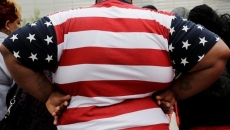New Delhi, Sep 11 (IANS) If you are suffering from chronic pain in your body, it may be time to actively work towards losing that belly or abdominal fat, suggests research on Wednesday.
Reducing belly fat may help reduce chronic musculoskeletal pain particularly if it’s at multiple body sites, especially in women, revealed the study, published in the open-access journal Regional Anesthesia and Pain Medicine.
Musculoskeletal pain, which affects about 1.71 billion people globally, affects bones, joints, ligaments, tendons or muscles.
Previously published research has shown that obesity is associated with musculoskeletal pain, but it’s unknown if excess fat tissue is linked to chronic musculoskeletal pain at multiple body sites, said researchers from the universities of Tasmania and Monash in Australia.
“Abdominal adipose tissue was associated with chronic musculoskeletal pain, suggesting that excessive and ectopic fat depositions may be involved in the pathogenesis of multisite and widespread chronic musculoskeletal pain,” said the team.
They suggested reducing abdominal adiposity for chronic pain management.
The study analysed data from 32,409 participants -- half (51 per cent) were women, and their average age was 55.
All participants underwent MRI scans of their abdomen to measure the amount of fat around the abdominal organs (visceral adipose tissue or VAT) and the amount of fat just under the skin that can be pinched (subcutaneous adipose tissue or SAT).
About 638 people were assessed again after two years.
The team found a significant link between the number of chronic pain sites and VAT, SAT, the ratio of the two, and weight (BMI).
The findings showed women were two times more affected compared to men.
Sex differences in fat distribution and hormones may be the reason why women are more affected, the researchers explained.






